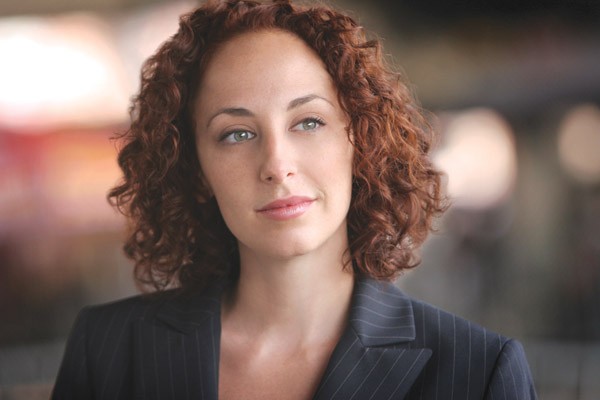“There is no way around the fact,” says playwright Rebecca Louise Miller, “that for kids of my generation in Sonoma County—kids who were 12, 13, 14 years old when Polly was kidnapped—that that event was a huge milestone in our lives. We had enough of an understanding of the world that we could really grasp what was happening, and we were also young enough that this was probably the first time we were confronted with the truly terrible things that exist in the world.”
Miller, an actress and writer working in New York City, grew up in Sonoma County, where she was a student in the very first ArtQuest drama program at Santa Rosa High School. She went on to perform often on local stages—many still remember her in Tom Stoppard’s Arcadia, performed by Actors Theater in 1999—before moving to New York and marrying playwright David L. Epstein. She continues to act in plays and movies, most recently appearing in the television film Prayers for Bobby with Sigourney Weaver.
Several years ago, encouraged by her husband to take a stab at writing, Miller began toying with the idea of building a play around her memories of the 1993 Polly Klaas tragedy. As a childhood friend of Klaas’, Miller wrestled with conflicted feelings about turning her memories into words in an actual script. But eventually she did write the play. Titled Fault Lines, it’s a fictional story about three estranged friends gathering together 20 years after the kidnapping of a mutual friend. In part, it examines the impact of the media on such tragedies and asks questions about exactly whom such public events belong to. When one character is told that her friend’s story is not hers to tell, she replies, “It’s the only thing I have that’s worth talking about.”
Fault Lines debuted in New York City in 2008, earning glowing reviews, and last year was published in the anthology Plays and Playwrights, 2011 (New York Theatre Experience; $19). Now Fault Lines comes home to Sonoma County, where it will be staged at Main Stage West theater in Sebastopol, directed by Beth Craven.
“It’s a little terrifying, to be honest,” says Miller, speaking on the phone. “It’s exciting, on some levels, but it’s also a little scary. It took me a really long time to write this play, in part because I had to grapple with the idea of the Polly I remembered, my friend, as compared to Polly Klaas the icon—an icon of something really terrible. The last thing I wanted to do was exploit Polly’s memory, but I felt I really needed to tell this story my way. And I had to fight these weird feelings of guilt and unease as I was writing the play, because here I was bringing it all up again.”
Miller plans to attend a performance partway through the run, looking forward to seeing the show as an audience member. Technically, she’s never seen the play, since in the New York run, she played the role of Rachel, a woman who responded to the kidnapping by becoming a driven, high-profile child-safety activist. Though deeply moving throughout, the play as written by Miller has plenty of authentic humor, and in its New York run, audiences were taken on a bit of a roller-coaster ride. Miller suspects the experience will be different in Sonoma County.
“Most of the people seeing it in New York didn’t know what it was about when they walked in,” she says. “It isn’t immediately obvious what it is these three women have in common. This time, I doubt there will be anyone who doesn’t know what it’s about and already has strong feelings about it. So the surprise element will be missing, and I expect people won’t feel as comfortable laughing when the bits of humor pop up. It’ll be interesting, that’s for sure.”
Though based on painful memories, Miller feels that the play is an important step in coming to terms with the way we all process unspeakable events.
“It’s the reason I got into the performing arts to begin with,” she says. “I believe that people having an experience together in a room in real time creates a capacity for change. It creates the opportunity for conversations, and that’s essential in helping us process those feelings. This play wasn’t written to heal myself—or to heal anyone. I don’t think a play can do that. But it can get us talking. And maybe some healing can come from that.”











